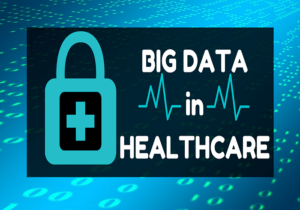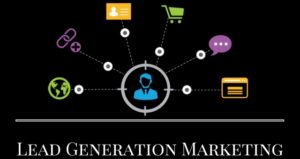15 Ways Which Can Improve Online Lead Generation by Using Big Data Analytics

“If you don’t know how to convert leads into clients consistently, you sell from your heels. You discount your services which kills your margins.”
– Russell Ruffino
Lead generation has become a focal point in the world of digital marketing. The conflict between marketing and sales has been ongoing for a long time, but for either of them to succeed, there needs to be unification. Sales cannot profit off some kinds of leads while marketing is attempting to get more buyers, no matter their type. So why are both of these aspects hurting your business? In the online sphere, the reality is that both accusations from sales and marketing teams are quite off base. While there are many issues with value of buyers and the issue of selling the right kind of products to a target audience, the issue is not in either of these departments. The actual problem is high quality lead generation and how they can be closed.
So, when it comes to most companies with average performance, lead generation drives the sales aspect. The issue of volume is something to consider when looking for qualifications, which has a huge impact on delivery. So how can you profit off this as a business?
What is Lead Generation?
The first question we have to ask ourselves is what exactly is lead generation and why is everyone so obsessed with it? It is part of a marketing process which captures the interests of new customers. The main focus is stimulation of a target audience to convince them to buy a particular product or service. If this is a successful venture, a strong sales pipeline will be developed. The process employs the use of digital channels and has evolved in the last few years with new technologies. With more and more information flowing through online channels about customer preferences and behaviors, there has been an increase in buyers who “self-direct”. This means that with the emergence of new techniques, there is also greater responsibility to quantify leads before they can be passed along for sales. Achieving mature lead generation is not an easy task, but it has massive payoffs. It was recently found that these kinds of companies profit 133% more when they employ a strong lead generation strategy.
The Business Perspective
From the business side of things, the kind of information a company collects about their customers is directly used for personalization of their products. This facilitates better communication between a company and their customer, while also addressing any existing issues or needs. Calling leads wastes a lot of time, especially if they are not interested in a particular field and its products. Even though leads are part of business growth and help move you forward, they are difficult to acquire. So what is the solution to this? Since all leads have their own pros and cons, there is no equality amongst them. The qualification of most leads depends on their type and their lifecycle. The traditional methods of calling and setting up physical appointments does not work anymore. What does work is data analysis and its projection onto these leads.
Improving the Value of Leads through Data Analytics
A recent study has shown that the average conversion rate for websites of all industries is around 2.35%. The rates that are brought in from offline strategies are not taken into account, but are said to be even lower than this. Generating conversion rates is not an impossible feat and there are some factors which directly affect them:
- The quality of the generated leads
- The effectiveness of the marketing strategy you employ
A new way that companies are using these factors to help their conversion rates is big data.
The Impact of Big Data
While big data is not a new concept, it was only recently that its use was made widespread for business growth. With new tech and better speeds of collection, huge amounts information can be analyzed within minutes. Furthermore, big data has had a remarkable effect on digital marketing and lead generation techniques. There are many ways this can be done, from effective content collection to better ROIs. At each stage of the conversion process, there has been considerable improvement.
1. Personalizing Real Time Information
The buying process comes with an awareness process. Big data allows businesses to customize the information they gather in real time. This ensures that they stay in touch with their target demographic by knowing exactly what they like. Their preferences are noted and then implemented into what your business can offer.
2. Marketing Performance and Customer Experience
A survey on marketing performance showcased that it is proportional to customer experience. Big data is part of a new way which companies can use to achieve their marketing goals. Where there is greater customer insight, there is also better response from customers. Companies who invest in developing customer centric strategies are thus bound to succeed.
3. Full Scale Campaigning
The insightful data that is collected can be effectively used for launching full scale campaigns. This is done through online marketing channels, like social media apps. Infographics also play a vital role in coming up with non-technical approaches to successful campaigns.
4. Identification of the Best Leads
When you are able to find out what the best types of leads are through the use of big data, the prospect of conversion is much easier. The value of this analytic approach is more than lead targeting, it also entails the minimization of early conversion loss.
5. The Benefit of a Selective Approach
Insightful data takes a selective approach to helping business growth online. As data is big and comes with many volumes, it needs to be broken down and categorized to address the direct issues with lead generations. Conversion campaigns will thus avoid these complex problems and utilize the right kind of data for their strategy.
6. Improving Customer Engagement
When you are at a certain level of proficiency, you will notice a substantial enhancement in customer engagement. Segmenting your customers and then tailoring your campaign to their individual needs is an obvious yet genius way of making them engage more with your brand. This improves lead scoring and then ultimately increases sales, similar to getting a website from a leading web design agency.
7. Utilizing New Technologies
Technology is driving all kinds of institutions. While this shapes our future, we need to take advantage of the transformation that the digital age has brought. Sales and marketing experts are seeing that collection big data has given them a firm grasp over customer behavior and requirements. So with new tech, like AI and machine learning, the utilization of efficient systems is the future of generating more leads.
8. Customer Behaviors
Big data is being used by most sales experts to make customer profiles. These include details that will help in creating products and delivering messages which the customer is most likely to enjoy. Where you take tons of information and get further clarity on what your audience wants, you can understand how to proceed further.
9. Better Market Research
A critical part of customer analytics is market research. When you employ big data you gain a better understanding of how to conduct market research and improve your leads.
10. Categorization Made Easy
Companies are engaging in categorized marketing by using big data. These are not only relevant to what the customer wants from a business, but they are also personalized to analyze the behaviors of all kinds of visitors. So whether you are coming up with customized newsletters or other forms of marketing campaigns, you are ultimately adding to revenue.
11. Maximizing ROI
One of the most compelling needs for big data is the maximization of ROI. Marketing leads and sales executives both benefit from this end result.
12. Cost Reduction
Big data saves businesses a lot when it comes to cost. When you take part in cloud based systems to collect large amounts of information you are identifying more problems with a single analysis. This helps in saving time and costs subsequently.
13. Scale Machine Learning
Machine learning is being used for big data collection and it can be scaled to enhance lead generation through online channels.
14. Helping Supply Chains
Supply chains can use data analytics and other kinds of quantitative processes to increase the generation of leads from all franchises. Not only this, but beyond the concept of internal data, businesses can see better resource planning for all supply chain systems.
15. Optimization of Operations
When there is increased efficiency in business operations, there is also a chance for greater optimization of marketing and scaling methods. Big data analytics improves productivity, speed and reduces complex problems to simple solutions.
The Bottom Line
In modern digital age we live in, marketing and its effectiveness depends on the use of data. While the flow and volume of information coming in can be overwhelming, big data management can be done for better lead generation results for all kinds of businesses.






